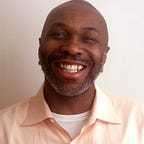I Don’t Understand My Black Middle Class Friends
A more personal take on how my experience with poverty makes me an outsider to those who are Black and of relative means
Since my eleventh birthday in 1980, poverty has been one of the defining features of my life. Between 1988 and 1999, I would go through three periods of significant unemployment, a two-and-a-half-year period of underemployment, and five days of homelessness. Some of this I went through growing up in Mount Vernon, New York. Some of this I experienced while living in Pittsburgh with either a master’s degree or a doctorate to my credit. It wasn’t until six months before I turned 30 before I had broken into the American middle class. Even with this, I have experienced occasional underemployment and wage theft, and will likely be paying on my student loans until my sixtieth birthday. I’ve been keenly aware of my working poverty, welfare poverty, and relative poverty over the years, even once I found my way into a middle-class income. Often because so many in my life couldn’t help but flaunt their wealth and their ways of viewing the world.
With my memories of poverty and debt a constant companion, it has always been difficult to relate to my more materially well-off friends, acquaintances, and professional colleagues, White and of color. It’s…
